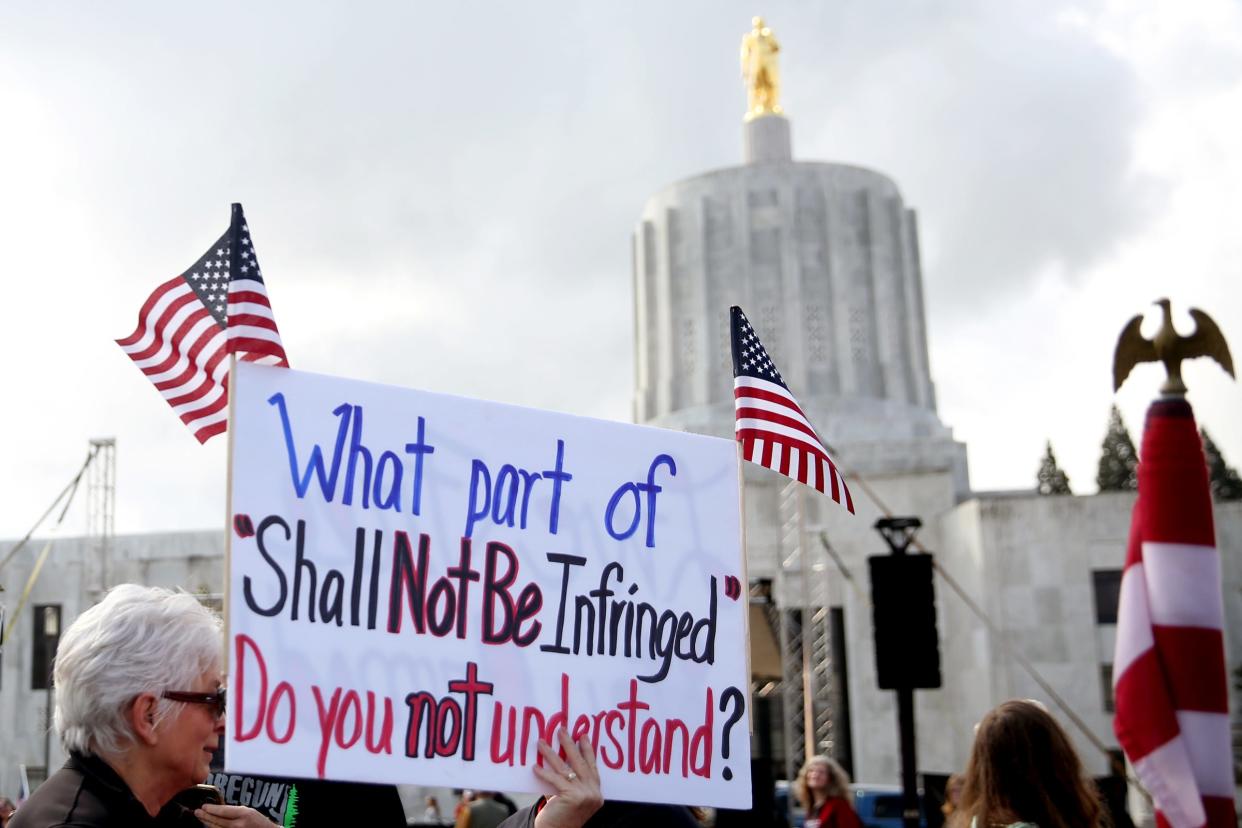Oregon voters pass Measure 114 to regulate firearms, magazines

Corrections & Clarifications: This article was updated to correctly reflect the date the new measure goes into effect.
Oregon voters have narrowly passed Measure 114, a strict gun measure that requires individuals to obtain a permit before purchasing a gun, bans large-capacity magazines that hold more than 10 rounds of ammunition and creates a statewide firearms database.
As of Wednesday, nearly 51% of Oregon voters had voted in favor of the measure while 49% voted against it.
Several sheriffs in Oregon have said they will not be enforcing the measure. In Linn County, Sheriff Michelle Duncan referred to Measure 114 as "poorly written."
"I want to send a clear message to Linn County residents that the Linn County Sheriff’s Office is NOT going to be enforcing magazine capacity limits," Duncan said in a statement posted on social media.
Union County Sheriff Cody Bowen, Sherman County Sheriff Brad Lohrey and Jefferson County Sheriff Jason Pollock echoed Duncan.
Polk County Sheriff Mark Garton in an October Facebook post came out in opposition to the measure, calling it unconstitutional and an unfunded mandate. Lane County Sheriff Cliff Harrold also came out against the measure on social media.
Uncertainty about the application of the new restrictions remains and opponents are hopeful that immediate lawsuits will halt the measure. Here's what you need to know:
What does Measure 114 do?
Under Measure 114, residents will be required to obtain a permit to purchase a gun. Applicants must pay a fee, submit a photo ID, be fingerprinted, complete approved safety training, pass a criminal background check and not be legally prohibited from possessing firearms. The fee will be a maximum of $65 and permits will be processed by local police chiefs or county sheriffs or their designees.
The permit would be issued within 30 days of an application being submitted and cost an additional $50 to renew every five years.
The measure also prohibits the manufacturing, importing, purchasing, selling, possessing, using or transferring of ammunition magazines capable of holding more than 10 rounds.
When does the measure go into effect?
Measure 114's requirements should go into effect 30 days after Election Day, on Dec. 8. But implementation of the measure will likely take much longer with police expected to seek an extension, opponents ready to file lawsuits and exact regulation still undetermined.
What do current high-capacity magazine owners do?
Residents who currently own large-capacity magazines can use the magazine in their homes or have them on the premises of a gun dealer for service or repair. The magazines can be used at a shooting range, at firearms competitions or exhibitions, or during lawful sporting activities including hunting.
Possession while transporting them to any of these activities will be permitted as long as the large-capacity magazine is not inserted into the firearm and is locked in a separate container.
Licensed firearms dealers will have 180 days after Jan. 15 to sell or transfer magazines to an out-of-state gun dealer or person out of state or to destroy them. After 180 days, no new magazines may be manufactured unless the manufacturing is for exclusive sale or transfer to the military or law enforcement and includes a permanent stamp or marking indicating that the large-capacity magazine was manufactured or assembled after the effective date.
What about the database?
Measure 114 adds that state police will need to create a searchable database of all permits issued. Information obtained regarding firearm background checks and gun sales will be exempt from public disclosure laws.
Maintaining the database alongside establishing a new permit-to-purchase system is a task some sheriffs have said they are incapable of handling.
"Implementation of BM 114 would put a huge strain on our already strained operation in the Sheriff's Office," Crook County Sheriff John Gautney wrote in a statement. "BM 114 puts a financial strain on our office that we cannot absorb, and does not provide any additional funding to the law enforcement agencies."
The Oregon Sheriff's Association expressed concerns about the cost of implementing the measure before the vote, estimating that agencies would need to spend more than $40 million in the first year alone.
This article originally appeared on Salem Statesman Journal: Oregon voters pass Measure 114 to regulate firearms, magazines

